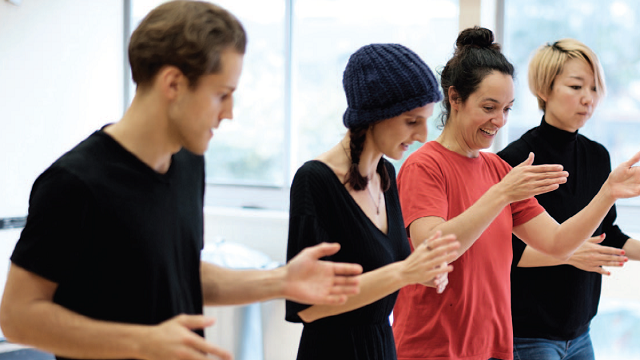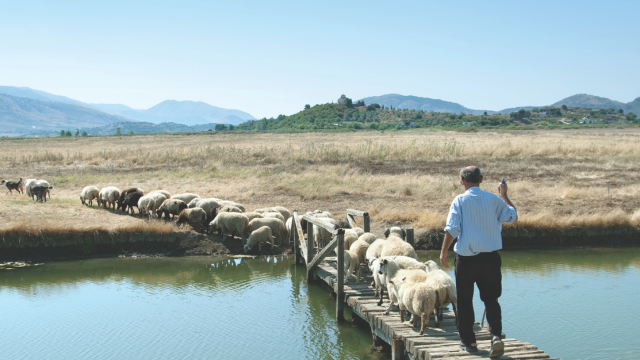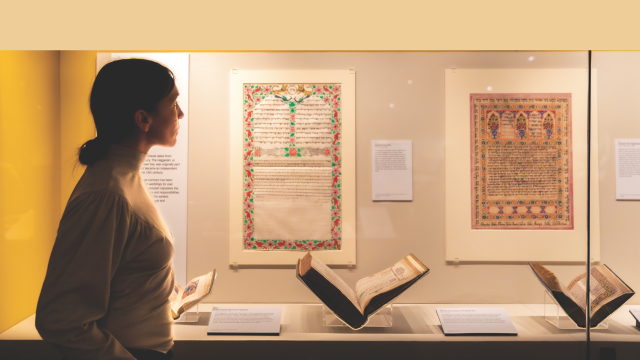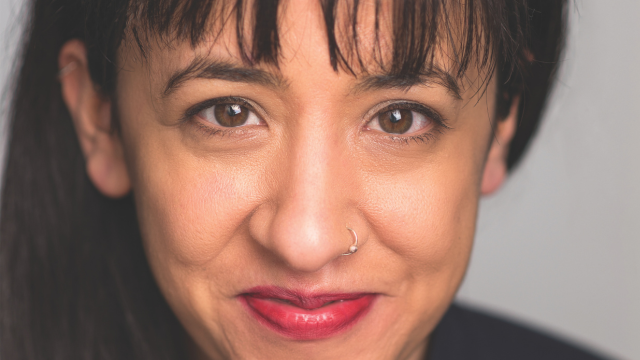-
QUALIFICATIONS
- For Linguists Worldwide
- For UK Public Services
- Preparation
- Policies & Regulation
-
MEMBERSHIP
- Join CIOL
- Membership grades
- NEW for Language Lovers
- Chartered Linguist
- Already a member?
- Professional conduct
- Business & Corporate Partners
-
ASSESSMENTS
- For Second Language Speakers
- English as a Second Language
-
EVENTS & TRAINING
- CPD, Webinars & Training
- CIOL Conference Season 2025
- Events & Networks
- CIOL Mentoring
-
NEWS & VOICES
- News & Voices
- CIOL eNews
- CIOL Awards
- The Linguist
- Jobs & Ads
-
RESOURCES
- For Translators & Interpreters
- For Universities & Students
- Standards & Norms
- CIOL & AI
- All Party Parliamentary Group
- In the UK
- UK Public Services
- Find-a-Linguist
No drama for foreign theatre
 Trine Garrett makes the case for enabling more productions in translation
Trine Garrett makes the case for enabling more productions in translation
London: one of the most multicultural cities in Europe, where between 100 and 300 languages are spoken, and approximately one third of the population was born outside the UK. Such diversity – linguistic and cultural – should, one might think, make for a rich theatre offering. And yet a Google search of London’s major theatres comes up empty: no theatre in translation in the West End. I widen the search to include some of the mainstream theatres known for presenting international work, such as Royal Court Theatre, Gate Theatre and Almeida Theatre, but still draw a blank. Can this really be?
Turning to the theatre translation community on Twitter, I am pointed in the direction of Lyric Hammersmith and the Cervantes Theatre (which is dedicated to showcasing Spanish and Latin American plays). Both have productions in translation: Britannicus by Jean Racine, translated and adapted by Timberlake Wertenbaker, and The Play to be Played by Miguel del Arco and Aitor Tejada, which will be performed first in Spanish and later in an English translation by Simon Breden. Just two plays in translation in a major global city with over 200 theatres.
While my research was not exhaustive, it is supported by my experiences of working in the field for more than a decade, as well as by several studies. The academic research project Translating Theatre, led by Dr Margherita Laera, for example, showed that less than 5% of all plays in the UK are in translation.
So why is so little theatre in translation produced in the UK? In the current – predominantly monolingual – theatre landscape, several challenges are cited. Many of these are related to attitudes towards translation, perceived risks involved in working with unknown playwrights, and concerns that audiences will not be able to connect with a foreign play. I am yet to see any real evidence supporting such claims, and my counter-arguments would provide enough material for a separate article!
What’s important is the impact of these attitudes on the art of translating for the stage, and thus on the role and craft of the translator. This is largely ignored, or even dismissed. Few opportunities exist for the translator to learn about translating for the stage or to hone their craft outside of a formal education setting.
A grassroots initiative
Since its early days, Foreign Affairs theatre company has almost exclusively worked with translated plays, and our approach has always recognised the translator as being integral to the creative process. A few years ago, I asked a group of translators about the main barriers they faced when working on play texts. They highlighted a lack of contact with performers and theatre-makers (i.e. working mainly in isolation); limited experience of the theatre-making process; and a lack of understanding of the wider industry and the ‘business’ side of things.
In direct response to this, Foreign Affairs launched its Theatre Translator Mentorship programme in 2016. Its core aim is to facilitate a space in which emerging theatre translators can be immersed in a collaborative theatre environment where they can discover, explore and develop tools, skills and approaches to translating for the stage. In this sense, the programme reflects our approach to working with translated plays, placing the translator at the heart of the creative process.
So far we’ve mentored 15 translators, with most going on to work with established UK theatres such as the Royal Court, New Earth Theatre and Theatre 503, as well as in the US (Theatre Y and The Cherry Arts) and Japan (Nissay Theatre). We are now in our fifth year, supporting four translators working from Hungarian, Italian, Norwegian and Spanish (for details see tinyurl.com/FAmentors).
Our work has grown to include running masterclasses and workshops, often with other organisations and institutions, including Royal Court Theatre, the British Centre for Literary Translation and SOAS University of London. In 2020, during the pandemic, we launched our Theatre Translator Lab. Intended as a sequel to the mentorship programme, the Lab creates and supports a community of practice, inspired by our ensemble of performers and theatre-makers.
Why translated plays matter
Foreign Affairs is based in Hackney, east London – one of the most diverse boroughs in the country. We run theatre-making workshops for young people from the area, and are in the process of expanding our theatre translator training to include introductory workshops for local young people (in particular first- and second-generation migrants) with the hope of inspiring them to take up a career in theatre or translation or both. Foreign Affairs is by no means alone in championing translation and translators. Several like-minded companies are doing great work in this field, including Out of the Wings at King’s College London, LegalAliens Theatre and Global Voices Theatre.
So, why does theatre in translation matter? One of the great things about theatre is that it reminds us that we are not alone. With a few exceptions, making and seeing theatre is a collective act – a shared experience between performers and spectators. One study even showed that audience members’ hearts beat in time when they’re at the theatre.1
Theatre offers insights into experiences beyond our own; add translation and the possibilities become boundless, as we are introduced not just to new experiences but to new worlds that we may otherwise never encounter. This offers a multitude of opportunities for exchange between cultures that open us up to new ideas, voices and ways of thinking. Cultural exchange can highlight our similarities (we all love, laugh and cry) and celebrate our differences and uniqueness, encouraging us to embrace a culturally diverse society (and industry).
Against a backdrop of tightened borders, the hostile environment created by our current government, and legislation making it even harder for people to seek refuge in the UK, the importance of these exchanges is greater than ever. Foreign Affairs continues to champion theatre as a space to foster understanding, mutual respect and a sense of solidarity across borders.
As a Dane living in the UK, I know from personal experience how theatre in translation can offer unique opportunities for migrant communities, including the chance to experience theatre ‘from home’ and to see themselves represented on stage.
I am reminded of the words of one audience member following a performance of The Warmhouse (Varmestuen) by Anna Bro, translated from Danish by Paul Russell Garrett: “I’ve never seen someone like me on stage before – someone with an accent.” This kind of inclusivity on stage and in our theatres has the power to unite and inspire audiences and communities – and, perhaps, to model a version of society we can aspire to.
Notes
1 Unpublished research by a team at UCL PaLS in 2017; tinyurl.com/UCLDevlin
Trine Garrett is Co-Artistic Director of Foreign Affairs, a theatre company based in East London that focuses on translation, international exchange and collaboration, and performance in unconventional spaces. Her directing credits include Where I Call Home by Marc-Antoine Cyr, translated by Charis Ainslie, and The Warmhouse by Anna Bro, translated by Paul Russell Garrett.
Filter by category
More
The Chartered Institute of Linguists (CIOL), Incorporated by Royal Charter, Registered in England and Wales Number RC 000808 and the IoL Educational Trust (IoLET), trading as CIOL Qualifications, Company limited by Guarantee, Registered in England and Wales Number 04297497 and Registered Charity Number 1090263. CIOL is a not-for-profit organisation.








